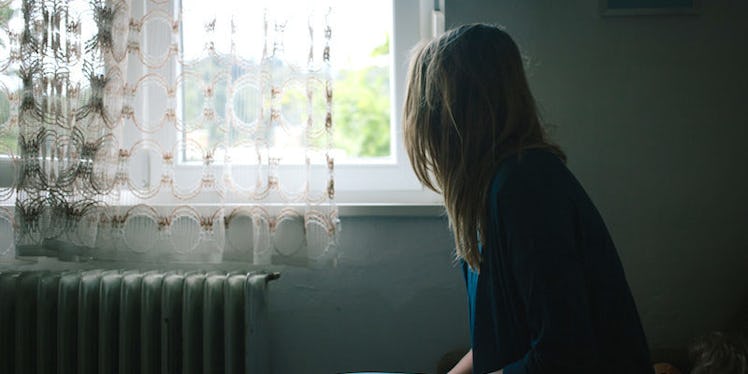
What I Learned From Coping With My Brother's Death At A Young Age
I remember the picture of my brother alongside a poem and how they sat neatly together in a wooden frame. It was a gift from a family friend to my parents after my brother died.
When I think of my brother, I often think of that framed memorial of him, which still sits on my mother’s dresser, and how it was, in many ways, an integral object in my first understanding of grief.
Jeremy was my oldest brother. I was 4 when he died; he was 10. There were complications when Jeremy was born, which resulted in him being “brain-dead” or “handicapped,” or a bunch of other words that are no longer politically correct for what he was.
I think the word for it now is “vegetable,” which, to me, is the most offensive.
Jeremy was born mentally and physically disabled. He could not walk and had to use a wheelchair to get around. He could not eat and had to be fed through a stomach tube. He couldn’t see; he couldn’t talk. He couldn’t do a lot of things, but that didn’t stop me from loving him.
As a little girl, I used to imagine my brother experiencing the world just like me, only unable to express it in the way I could. As an adult, I often think of how my life would be different had Jeremy been born without health problems, and what that would look like if he were still around.
I remember that picture of my brother and the poem that accompanied it inside the wooden frame because when I was 4 and experienced my brother’s death, it swept over me like fog that rises and settles on the river.
I didn’t understand it. It was there; it was hazy, but the memorial frame was there and it would later help me to understand.
My mother tells me I used to draw pictures of Jeremy ascending into heaven. If I wasn’t drawing that, I apparently drew him as an angel. My mother said I made those drawings often, and she let me do it because she felt it was my coping mechanism.
I don’t remember that.
I also don’t remember swinging off the handles of the casket in the funeral home, and how I apparently had to be taken into another room. Those are not moments that stick out to me because I was young, and only few memories of that time exist for me.
I don’t remember what a lot of that time was like for me because I was too young to understand what it meant to die, and I was too young to understand what that felt like for the living when they were faced with the death of a loved one.
I didn’t know what grief meant. Until, one day, I did.
Some time after Jeremy died, probably months after his funeral, I remember walking into my parents' bedroom, blue blankie in tow, crying slobbery, giant, child tears.
It was the kind that works you up and makes you forget how to breathe. I remember my parents seeing my wet face and heaving little body and how they came to me with urgency, not knowing what was going on.
They asked me what was wrong, to which I replied something like, “He’s not coming back, is he?” My tears were then met with theirs. They explained death to me, for what I’m sure wasn’t the first time.
Then they grabbed the framed memorial of Jeremy. We looked at it together. They read the poem aloud to me. We looked at his picture. I put my hands on the frame, and smoothed them over the glass and let the tears fall on to it.
The idea of death was tangible to me that way. We grieved together. It was my first grieving, my first real understanding of death. He wasn’t coming back.
I finally understood.
It’s funny, the things we remember and the things we don’t. My mom remembers my drawings; I don’t. I remember this moment of crying and coming together; my mom doesn’t.
I think both moments were big moments, which is why they were remembered. My mom probably remembers my drawings because it was probably very hard to see her child draw reminders of her other child’s death.
I remember my crying fit because it was the first time I understood the magnitude of death. It was the first time I grieved.
To this day, I still cry big tears when someone dies. I usually get it out of the way upon first hearing of a death, and then I am typically composed from that point on.
I don’t often cry at funerals, or at least, I try not to. I don’t like for people to see me cry, and it gives me a very uncomfortable feeling when people try to soothe me if I do cry in front of them. I feel like a heavy brick in their arms, and I want to become defensive.
Grief is weird; we all handle it differently.
I will never forget my first understanding of death and that first time I grieved. It was a monumental moment for me. In a way, a piece of my innocence was chipped away that day.
For a moment, I was thrust into adulthood. I would never look at life the same way because I knew it didn’t last forever. I wasn’t invincible.
Jeremy taught me many things: He taught me to be thankful for the things people often take for granted like mobility, eyesight and the ability to taste; he taught me that my mother was and still is a hero for all she did for him.
His inabilities taught me to live with adventure. He taught me compassion.
Through his death, I learned my first adult lesson. I learned about death and grief and what it meant to say goodbye.